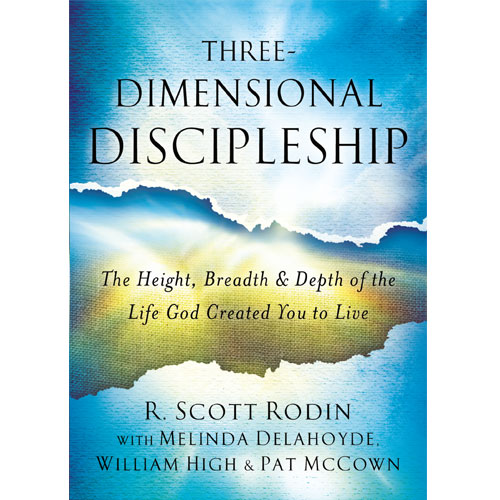Stewards of the Despised

Each of you should use whatever gift you have received to serve others, as faithful stewards of God’s grace in its various forms. 1 Peter 4:10
It’s likely we can all affirm that the basic tenants of our Christian faith are under attack. I want to use this blog to challenge our thinking about what is really at stake, and discover the surprising teaching that is being rejected in the moral implosion of our society. I was shocked to discover this, and you may be too.
Of all of the teachings of Christianity, all of the ethics of the kingdom of God, and all of the moral implications of the words of Jesus, for us as followers of Christ, the most joyful, comforting and, one would think, benign foundation of our faith is the concept of grace. Grace seems so easily acceptable, so comforting, such a welcome part of Christian doctrine. However, even as it stands at the center of our ecclesiastical convictions and biblical teaching, it is, at the same time, becoming the vilest, most hated idea in our ‘woke’, self-righteous culture. Let me share a few reasons why I believe that is the case.
To begin, we must look outside of our own Christian blinders and realize the radical nature of the concept of grace. Grace assumes that we are in a position where grace is good news. That means, we understand that without grace we are lost, condemned, and without hope. Grace assumes guilt, sin, condemnation and judgment. Grace assumes that, without it, the justice of God will prevail, and we will be found in our sin and lost forever. Grace is only grace when sin is truly sin, and when we feel the weight, burden and judgment for that sin. To the one who is lost and without hope, grace is indeed the amazing, incredible, good news.
That presupposition, however, is what is being categorically denied and even anathematized in our culture. Let me give you three quick examples. The first is the emerging cultural worldview coming out of our liberal universities that is called ‘Critical Theory’. Built on Marxist ideology, this latest version of Critical Theory divides all people into two groups (and whenever you hear any philosophy that can categorize everybody in the nation into two groups, that alone should be a red flag). The two groups are the oppressors and the oppressed. You get assigned one of these two categories based on a set of criteria established by those that represent the oppressed. The oppressed are all of those who, according to their own standards, are kept from fully achieving their potential because of the systematic oppression of the established elite. Of course, everyone wants to align themselves with the oppressed. And that’s part of the problem. Most of the oppressors don’t know that they’re oppressors and would reject the notion outright. But that has no impact on the oppressed who have already named them.
Here’s where Critical Theory collides with the concept of grace. If you’re among the oppressed, you hate grace. To extend grace in Critical Theory would mean practicing forgiveness in place of accusation, compassion in place of vengeance, reconciliation in place of retribution. The self-ordained oppressed only want justice, their justice, justice according to their standards in their norms. The last thing the oppressed want is for grace to be extended to the oppressors. On the other hand, those who get labeled as oppressors see no reason for grace for what others claim they have done, or for it to be extended to those they have supposedly injured. Grace has no meaning if there is no personal acknowledgment of sin. In much of the Critical Theory worldview, a victim/entitlement view of justice and situational ethics prevails, and grace is scorned for its blind and detached sense of unreasonable and unfounded compassion. But of course, that’s the whole definition of grace.
The second example is the emerging ‘Cancel Culture’. According to the ‘woke’ police, anything that might be found offensive in our history must be obliterated. Any statue, monument, writing, or vestige of a past that in anyway represents injustice cannot be tolerated. The hope here, according to Cancel Culture, is to sanitize our society of reminders of the evils of our past, believing that by doing so we will somehow be better prepared not to repeat them. Of course, exactly the opposite is the truth. This again is an absolute denial of grace. It does not require us to consider what it was like for those in our past to live and operate in the culture in which they did. We superimpose our current understanding onto a time and a place we can’t fully understand. It is hubris and arrogance of the highest degree. To reject this movement does not mean we exonerate any past evil, but it recognizes we do not have the right to pass judgment. Instead, grace would allow us to learn from the past, to try to understand life from the perspective of those who we might otherwise hold in disdain. Grace starts with forgiveness and seeks understanding. And grace always acknowledges our own blind spots, our weaknesses, our own responsibility to extend grace and our need for others to extend us the same. This concept of grace, extended and received, has no place in cancel culture.
Finally, we have lost all sense of grace in our political system. When was the last time you turned on the nightly news and the lead story was about a major politician extending grace toward an opponent? Our politics have been taken over by such bitter, vitriolic divisiveness that grace is wholly absent in our national dialogue. In fact, grace is seen as weakness, vulnerability, and the loss of opportunities to strike an opponent when they’re vulnerable. Why should any of us care about grace when we see none of it practiced among our leaders?
When a nation ceases to believe it needs grace, it will see no need to be gracious. D. L. Moody commented, “A man does not get grace till he comes down to the ground, till he sees he needs grace. When a man stoops to the dust and acknowledges that he needs mercy, then it is that the Lord will give him grace.”
Amidst the growing deception of critical theory, the blind self-righteousness of our cancel culture and our increasingly divisive politics, followers of Jesus stand alone as stewards of grace in its various forms. Our words of grace are going to be met with increasing hostility and persecution. Our culture’s hatred of grace is colliding everyday with this teaching that lies at the heart of the gospel.
Yet that is what we must proclaim more clearly and lovingly now than ever before. Because grace is our nation’s only hope!
Here’s the hard truth about grace. Without grace, we are lost. Every human being on the face of the earth stands in judgment before a holy and righteous God, and the only hope they have is grace. Grace was the foundational commitment of God in creation. It anticipated the fall and was the consistent response of God toward a disobedient and rebellious nation of Israel. God’s nature as grace saw beyond the massive sins of humanity all the way to the cross. It emptied the tomb, sent the Holy Spirit, and is the hope of our world through the love of Jesus Christ. Grace embraces all of our shortcomings, all of our sin, every thought, action and word that separates us from God. Grace is God’s amazing and loving response to an entire humanity that doesn’t deserve it. And yet we have it. We have grace in the blood of Christ, grace in the power of the Holy Spirit, grace in the daily forgiveness of sins and grace in the hope of the coming of Christ.
In this world, the word of grace is our life’s breath. It’s what makes us Christians. It’s the proclamation of the heart of God. Yet the world, which so desperately needs to hear it, is recoiling at the sound. You and I are called to be stewards of this amazing grace.
Given the growing animosity toward this most beautiful tenant of the Christian faith, will we stand firm and proclaim it boldly? And will we follow Peter’s exhortation to use whatever gifts we have received to serve others, that grace may be lived out through the way in which we love one another?
How will you be a steward of the grace of God in all of its forms today?





